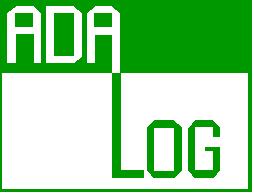This training session is organized by Adalog in association with its parent company Axlog. It is given in English on demand only; if you are interested in having such a session organized, please click here to contact us. This session is also given on a regular basis in French at Adalog's premises; click here for the next scheduled sessions.
AADL (Architecture Analysis & Design Language) is a new language for the description of architectures. It grew out of MetaH, which was developed in the 90's by Honeywell. This language is intended for the design and description of embedded real-time architectures, by considering simultaneously all underlying software and hardware aspects. Its formalism allows for processing designs by verification and proof-making tools.
The international standard for AADL has been prepared since 2001 by SAE (Society of Automotive Engineers), and version 1.0 has been published in 2004. The standardizing committee includes main stakeholders from the avionics and aerospace industry, in Europe and the USA (Honeywell, ESA, Airbus, Rockwell Collins, EADS, etc.). Adalog and Axlog are members of this committee and take an active participation in its work, they are also involved in European projects that make use of this language.
Who should attend this training?
This training is intended for engineers and researchers who want to get knowledge of AADL in order to integrate it into their development process or to use it in a software or system project. Attendees will get a complete coverage and understanding of the standard in its most recent version.
Prerequisite
none
Detailed program
| A.M. | P.M. | |
| Day 1 Introduction, general principles |
|
|
| Day 2 Advanced features of the language and extensions |
|
|
